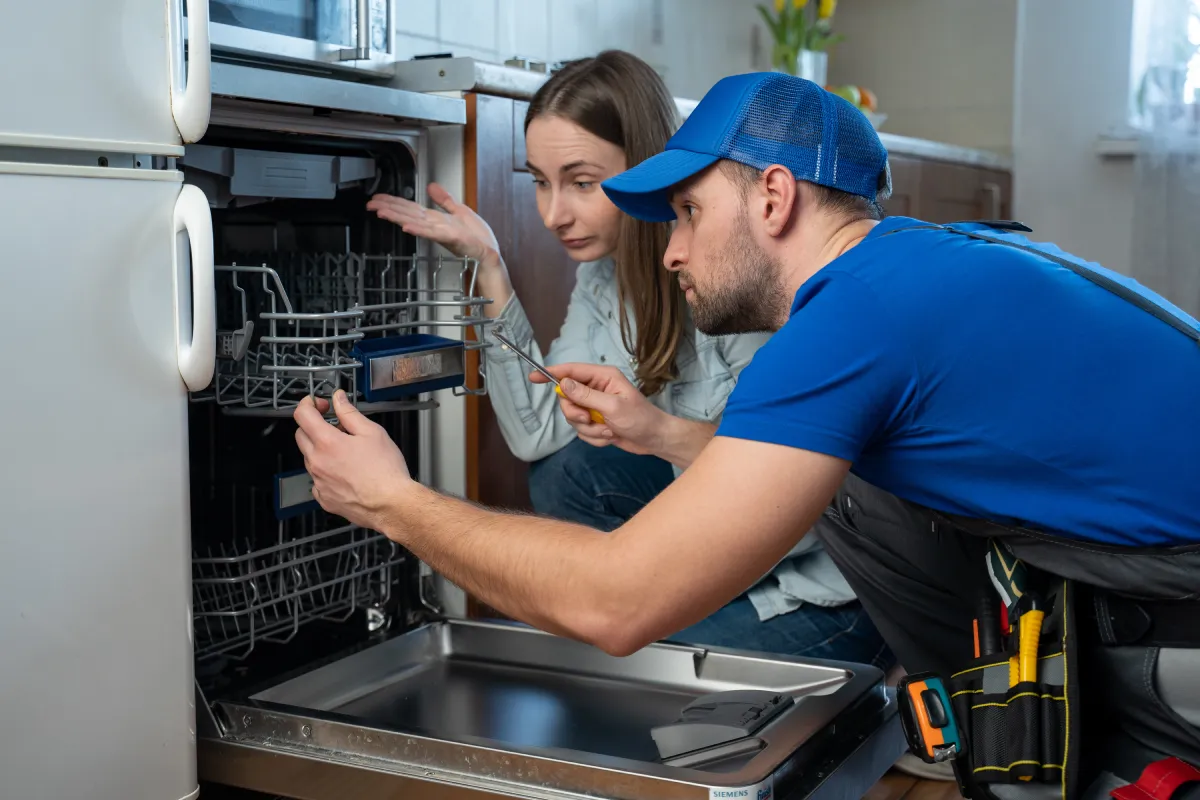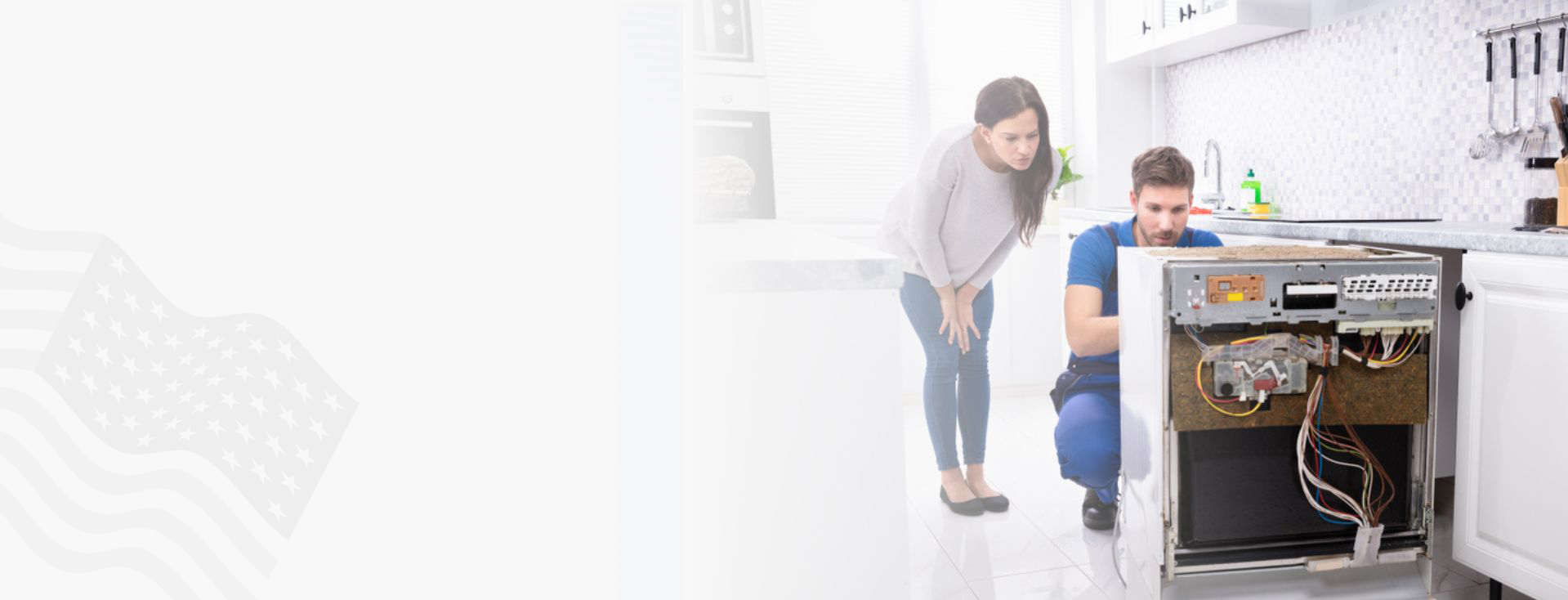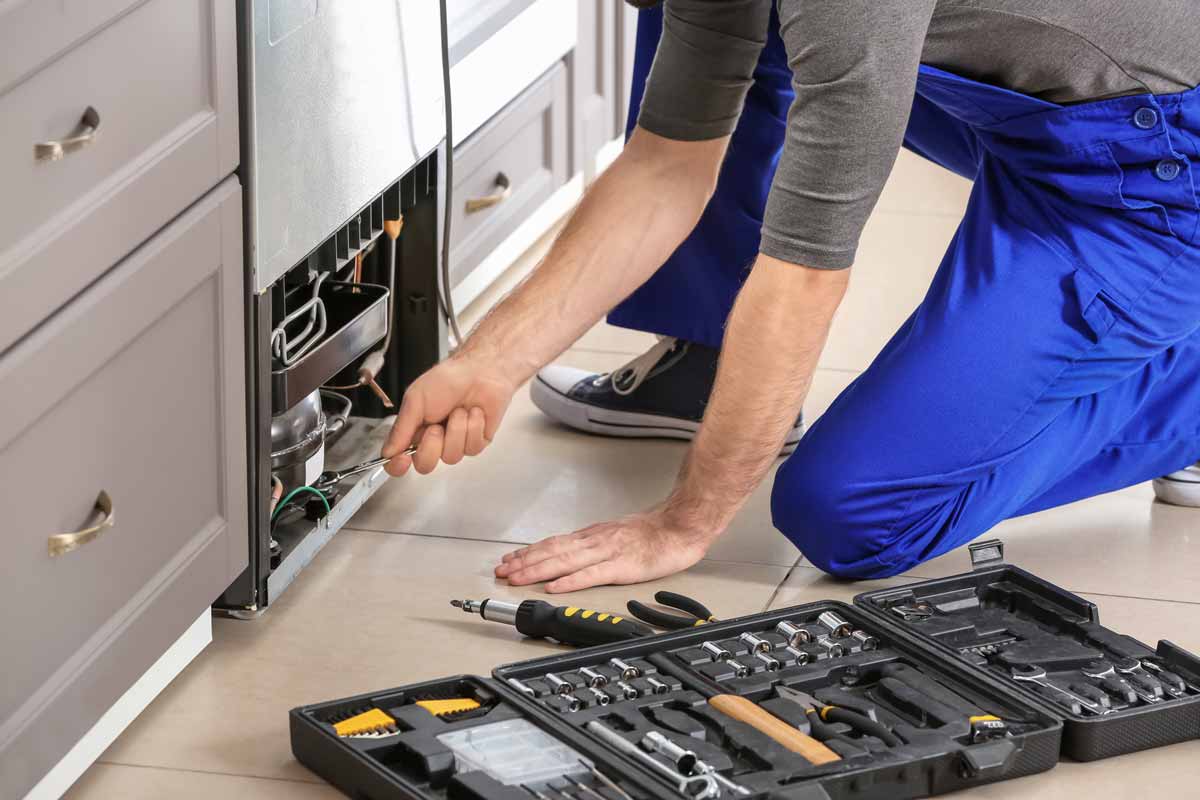OEM vs. Aftermarket – Dependable Refrigeration & Appliance Repair Service Washing Machine Repair
OEM vs. Aftermarket – Dependable Refrigeration & Appliance Repair Service Washing Machine Repair
Blog Article
The Ultimate Guide to Understanding Home Appliance Repair in your home
When your fridge quits cooling or your oven declines to warm, it can really feel overwhelming. Comprehending device repair work in your home can conserve you time and money. You'll learn to acknowledge signs and symptoms, use crucial tools, and comply with an organized troubleshooting procedure. However prior to you begin, there are critical security preventative measures you need to consider. What are the most common issues, and exactly how can you fix them? Let's discover the essentials.
Usual Appliance Issues and Their Symptoms
When your home appliances start breaking down, it's vital to identify the indicators early on. Ignoring them can lead to larger concerns and pricey fixings. For example, if your refrigerator isn't cooling properly, you could observe warm areas or condensation forming. This might suggest a stopping working compressor or an obstructed vent.Your dishwasher may show troubles through dirty meals or unusual sounds during cycles. If you listen to grinding or clanking, it's time to investigate.A washing equipment that won't rotate or drain can leave you with soaked laundry, suggesting a clogged drainpipe or a malfunctioning pump.Lastly, if your oven's temperature appears off or it takes forever to preheat, you could be taking care of a faulty thermostat. By remaining alert to these signs, you can address problems prior to they intensify into significant repair services.
Vital Devices for Appliance Repair Work
When you're tackling appliance repair work in your home, having the right devices is necessary. Basic hand devices like screwdrivers and pliers will certainly help you disassemble and repair different home appliances, while electrical testing devices guarantee you're functioning securely with circuitry. Let's discuss what you require to get started on your repair work journey.
Standard Hand Devices
Having the right devices is essential for reliable device repair at home. Beginning with a reliable screwdriver collection, consisting of both flathead and Phillips types, as screws are common in appliance setting up. Pliers are likewise essential; they help with gripping, turning, and reducing cables or small components. A set of needle-nose pliers can reach tight places quickly. You'll need an excellent adjustable wrench for tightening or loosening up nuts and bolts. An utility blade comes in handy for puncturing product packaging or insulation. Ultimately, don't neglect a tough workbench or surface to safely arrange your devices and parts. With these basic hand devices, you'll be well-prepared to tackle most device repair services that come your way.
Electric Screening Tools
Together with standard hand tools, electrical screening devices play an important duty in home appliance repair. These devices aid you identify electric issues and warranty home appliances operate safely. A multimeter is crucial; it gauges voltage, current, and resistance, enabling you to determine problems swiftly. A non-contact voltage tester is another must-have, allowing you spot online cords without making direct get in touch with, enhancing your safety. Secure meters are terrific for measuring present flow in wires without detaching them, saving you effort and time. Furthermore, circuit testers can swiftly check if electrical outlets are operating appropriately. By utilizing these devices, you'll simplify your troubleshooting process and boost your repair service abilities, making appliance maintenance a lot simpler.
Step-by-Step Overview to Diagnosing Home Appliance Issues
When your device breaks down, it can be frustrating, but identifying the problem does not need to be frustrating. You'll discover to recognize usual problems and use efficient repairing methods. Allow's go through the steps to get your device back in functioning order.
Common Appliance Issues

Fixing Techniques Discussed

Fixing Major Cooking Area Appliances: A Closer Look
Have you ever wondered how to tackle common issues with your kitchen appliances? Repairing major kitchen home appliances like fridges, stoves, and dishwashers can be much easier than you think. Start by determining the trouble-- whether it's a fridge not cooling or a stove that won't heat up. Often, a straightforward reset or checking the power source can fix the issue.For refrigerators, clean the condenser coils and examine the door seals. If your oven's not home heating, examine the home heating aspect and thermostat. Dishwashers may just require a clean filter or a reset to obtain them back in action. Constantly unplug the device before diving into repairs to assure your safety.Don' t forget to consult the customer manual for details fixing suggestions associated with your design. With a bit of perseverance and the right tools, you can confidently tackle appliance repair services and conserve money in the process!

Fixing Washing Equipments: Tips and Techniques
When your washing appliances begin acting up, it can feel frustrating, but fixing them does not have to be a hassle. Begin by examining the power supply. Confirm the home appliance is connected in and the outlet is working. Next off, examine the door or cover button; a defective button can protect against the device from operating.For washing machines, if it's not spinning, look for unbalanced loads. Rearranging the clothes might solve the issue. If your dryer isn't home heating, tidy the dust filter and check the vent for blockages.Listen for unusual noises; they can suggest a trouble. If your appliance is dripping, examine the hoses for fractures or loosened links. Record any error codes shown on electronic screens, as they can direct you in recognizing the concern. Get in touch with the user guidebook for specific repairing pointers connected to your version.
Security Preventative Measures to Take During Repairs
Before you begin any home appliance repair services, it's important to focus on safety to protect against accidents or injuries. Unplug the device or turn off the circuit breaker to ensure no power reaches it while you work. Usage shielded devices to reduce the risk of electric shock. Put on security goggles and handwear covers to safeguard yourself from sharp sides or debris (Dryer repair Oro Valley Dependable Refrigeration & Appliance Repair Service).Make specific your work space is clean and well-lit, so you can see what you're doing. Keep children and pet dogs far from the location to avoid distractions and possible risks. If you're taking care of gas home appliances, be additional careful; look for leakages prior to proceeding.Take your time, and don't rush through fixings. If you really feel unpredictable concerning any action, it's better to pause and study than to presume. Complying with these preventative measures will help develop a more secure atmosphere for your do it yourself home appliance repair job
When to Call an Expert for Aid
Just how do you recognize if it's time to hire a specialist for appliance repair services? If you have actually attempted fundamental troubleshooting without success, it's a clear sign. If your appliance still will not begin or shows unusual noises after resetting it, do not think twice to seek professional help.When you discover leaks, smoke, or melting smells, prioritize safety and security and call a professional instantly. These issues can result in more substantial damage or posture threats to your home.Also, if your device is under service warranty, speaking to an expert is typically the most effective route. They can ensure that repairs will not invalidate your guarantee, conserving you money in the long run.Finally, if you're uncertain or unpleasant with complex fixings, it's a good idea to leave it to the specialists. Keep in mind, dealing with repair dryer near me challenging problems without the best know-how can cause expensive mistakes. Trust a specialist when doubtful!
Often Asked Concerns
How Can I Prevent Device Troubles in the Future?
To avoid home appliance problems in the future, you need to do routine maintenance, look for wear and tear, tidy filters, and prevent overloading. Staying proactive will certainly help expand their life expectancy and keep them running efficiently.
What Are one of the most Common DIY Device Repair Mistakes?
You could forget security precautions, miss repairing steps, or utilize incorrect devices when attempting do it yourself home appliance repair work. Hurrying the process or disregarding supplier standards can bring about even more significant problems and costly errors. Keep individual and educated!
Exactly how Do I Know if a Component Needs Substitute?
You can tell if a part requires substitute by inspecting for uncommon sounds, leaks, or irregular efficiency. If the appliance has a hard time to run correctly or shows noticeable damages, it's likely time for a replacement.
Can I Make Use Of Generic Parts for Home Appliance Services?
Yes, you can utilize common components for appliance fixings, but determine they look at this website work - Kenmore Dryer Repair Oro Valley Dependable Refrigeration & Appliance Repair Service. Common parts might save you money, however they could impact performance or long life, so weigh your options thoroughly before making a decision
What Guarantees Cover Home Appliance Repairs?
Most appliance guarantees cover repair services for producing flaws, however they commonly leave out damages from misuse. Check your warranty terms carefully, as some could call for making use of certified technicians and original components for protection to stay valid.
Report this page